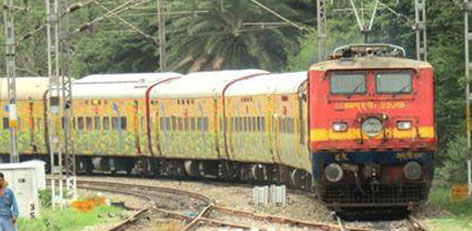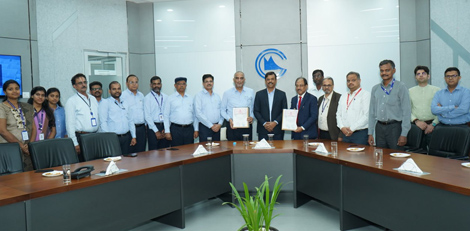Speed of express trains reduced in Chennai due to hold-ups!
Posted on: 15/May/2015 10:02:15 AM

Due to hold-ups, the speed of all express trains in Chennai has been cut down to 15 kmph (kilometres per hour)!
It seems that travelling by car in heavy traffic congestion may turn out to be faster than travelling by train in Chennai city!
Several factors have combined as bottlenecks to reduce the speed of the express trains arriving at Chennai.
Trains heading to Chennai Central and Egmore stations arrive on time at the border towns of Tiruvallur, Gummidipoondi and Chengalpet!
However, the last mile run into the city is fraught with speed cuts, halts for suburban traffic and other reasons,
As per Southern Railway officials:
It takes seven minutes for a train to cover 2 km between Basin Bridge and Central
It takes 14 minutes to cover 3km between Korukkupet and Central.
In this scenario, with the delays that trains face en route to Chennai, the Centre`s ambitious plan to have `semi high-speed` trains capable of running at a sustained 160kmph may be a long time coming as far as the city in concerned!
The lines leading to Central and Egmore stations are not capable of handling trains moving at anything faster than 30 kmph!
Trains are forced to slow down due to speed restrictions, curves and turnouts (railway line switches that enable a train to move from one track to another).
A locomotive pilot informs that lines from Arakkonam, Gummidipoondi and Tambaram have turnout spots that trains take around 4 minutes to cross at speeds of less than 15 kmph.
This slowdown leads to the bunching of trains.
The trains are forced into several start-stop efforts leading to fuel wastage as well.
There are at least six turnouts hold up trains heading to the city located at Gummidipoondi, Kavarapettai, Ponneri, Minjur, Ennore and Thiruvottiyur on the 45 km Gummidipoondi-Chennai line, and at Pattabhiram, Avadi and Ambattur on the Tiruvallur-Chennai line.
The lines converge at the Basin Bridge station and this leads to delays for a majority of trains.







